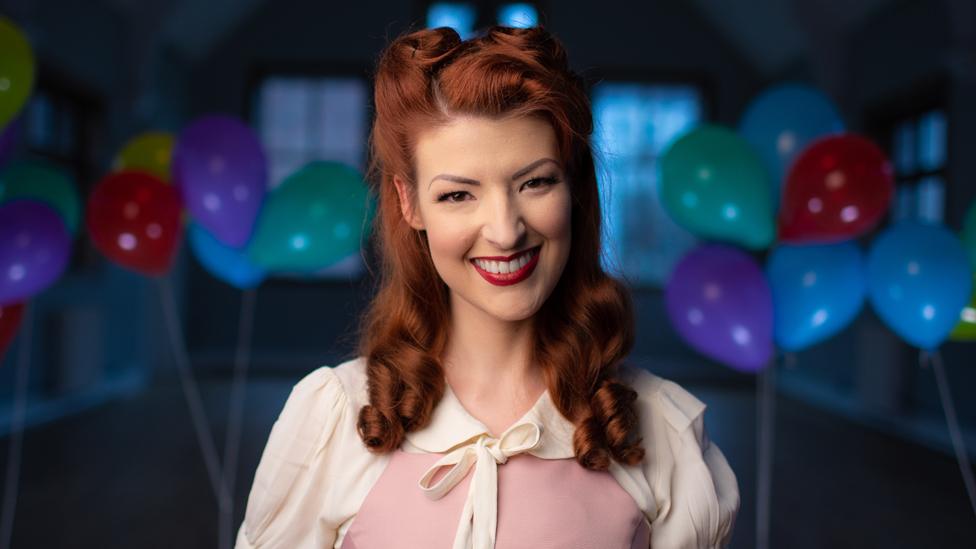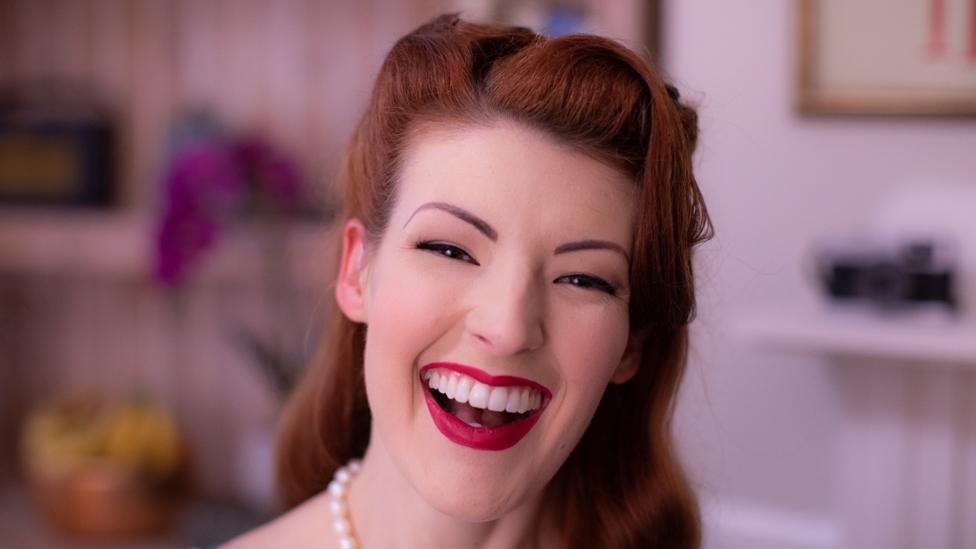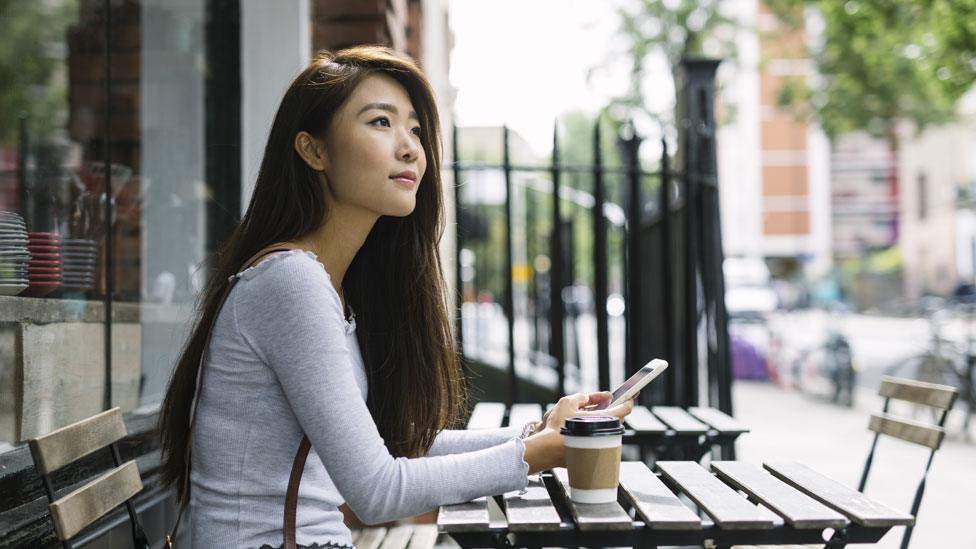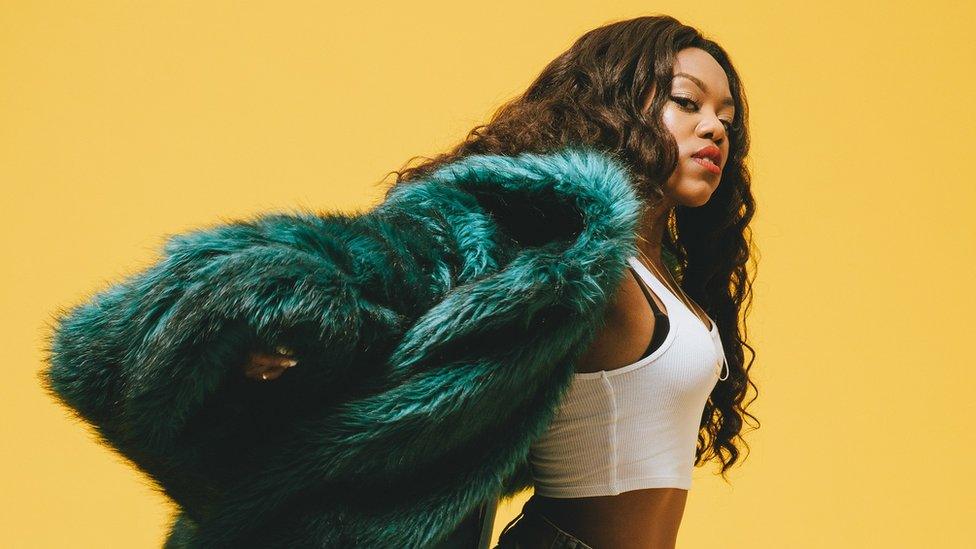YouTuber Jessica Kellgren-Fozard: 'It's OK not to be OK'
- Published

On World Mental Health Day, a disabled presenter shares her simple secrets of happiness.
Jessica Kellgren-Fozard gets a real kick out of life's small pleasures - a beautiful dress, a warm bath, or a good night's sleep (on a good day, all three).
The YouTuber, who has more than half a million subscribers to her channel, is deaf, partially visually impaired and has a rare autoimmune disorder, MCTD, as well as a nerve disorder, HNPP.
Such chronic disabilities may make her life tough at times, but she's determined not to let them define it.
"Because the medical condition that I live with is very unpredictable, I can wake up one morning and not have the use of my legs," she tells the BBC.
"Or I wake up in the morning - when I was fine the day before - and now all I can do is vomit and I can't lift my head and it's like, 'oh, right!' Because of that I never know what tomorrow is going to be, so I've kind of I've got to just enjoy now - otherwise, who knows?"
She adds: "I have to do the fun things now, I can't just be waiting."
Kellgren-Fozard lives in Brighton with her wife Claudia (and dogs Walter and Tilly). Their relationship even has its own Instagram page, "for people who enjoy adorable and quite cheesy lesbians". On her channel she posts about a wide range of topics from why you don't have to love your body, losing your hearing and whether or not straight people should go to Pride.
Now, along with a host of other popular YouTube creators, including the Martinez Twins and Lady Leshurr, the activist has joined forces with modern philosopher Alain de Botton to tackle some of "the greatest philosophical questions of our age" for his School of Life channel.
She was handpicked for the unenviable task of grappling with a topic that has troubled mankind since the year dot - what is the secret of happiness?
Allow YouTube content?
This article contains content provided by Google YouTube. We ask for your permission before anything is loaded, as they may be using cookies and other technologies. You may want to read Google’s cookie policy, external and privacy policy, external before accepting. To view this content choose ‘accept and continue’.

For some it meant money, for others it was dream holidays, and in one instance a Chanel handbag (other handbags are available). But in her seven secrets of happiness, the presenter went for more modest and noble targets - such as acceptance, appreciation and personal growth.
In the pursuit of this happiness, she thinks it's time we cut ourselves, and each other, some slack.
"Oh gosh, for sure. Things that we focus on on my channel are things like it's OK not to be OK, and the importance of kindness," she explains, via a subtitled video call app.
'Invisible disability'
"We give ourselves a very hard time and we give other people a very hard time. From my experiences of living with an invisible disability, you feel the weight that society puts upon you.
"I don't look like a traditional disabled person, I don't act like I'm supposed to and there's this fear around it. What we need to be doing is really deconstructing that and, when we look at other people, take a moment to think with kindness. 'That looks like an able-bodied person walking into a disabled toilet, but maybe that person needs that help.'
"'Maybe I shouldn't be judging other people', and that in turn I think helps us to learn not to judge ourselves.
"Because," she goes on, "it's very difficult in our modern hustle culture. Where we think you've got to be doing things and being productive all the time, to all become CEOs and making loads of money and it'll be great.
"What we really should be doing is going 'Oh, you know, I am actually a bit tired today, I should be kinder with myself, and give myself a bit of a break'. Or 'I didn't quite reach that goal that I wanted to reach but you know what, I was really struggling this month with a terrible cold so I actually did pretty well considering.'"

The 30-year-old sometimes has to use a mobility aid and, on days when she's housebound, social media is her only her gateway to the outside world.
She stresses the importance of regularly connecting with people, both online and on her infrequent but treasured trips out - like this week's new series launch and her recent visit to the University of Worcester, where she was given an honorary degree for her work as a disability rights activist.
Completing her own actual degree in five years "literally almost killed me", she jokes - but you sense she means it.
'Body positive'
The broadcaster has been greatly encouraged by the "body positive movement" she's seen developing on platforms like Instagram, though she does feel that others could do their bit for the general happiness index by curating their feeds with more "intelligence".
"You've also got a great community of people who talk about realities in life, and there's great mental health support on there as well.
"I think it's healthy to have a mix with the real life, terrible, grainy photo that my dad took of the sunset... but then there's a beer can in the foreground! That's real life.
"You should have that mixed in with your perfect Instagram shot."
The YouTube Originals The School Of… series is online now.
If you or someone you know has been affected by a mental health issue, help and support is available at bbc.co.uk/actionline.

Follow us on Facebook, external, on Twitter @BBCNewsEnts, external, or on Instagram at bbcnewsents, external. If you have a story suggestion email entertainment.news@bbc.co.uk, external.
- Published10 October 2018

- Published11 April 2018
